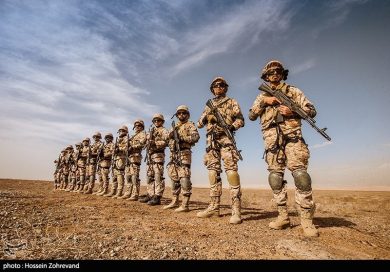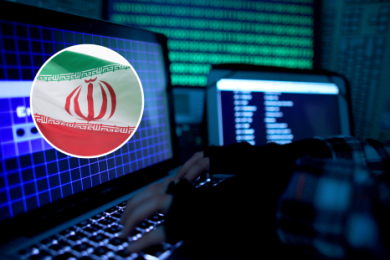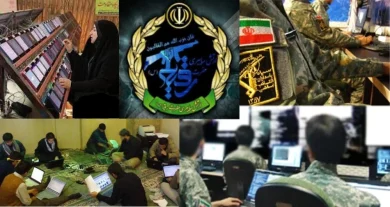Iran’s ongoing fight for justice, freedom, and human rights has been met with brutal repression from the Islamic Revolutionary Guard Corps (IRGC) and the Iranian regime. However, the global community has increasingly stood in solidarity with Iranian activists and citizens. From international protests to sanctions and digital support, global solidarity plays a crucial role in amplifying the voices of Iranian dissidents and holding the regime accountable for its abuses. This article explores the importance of global solidarity, the initiatives supporting Iran’s freedom movement, and the challenges activists and their allies face in this fight.
1. The Importance of Global Solidarity
Global solidarity ensures that Iranian activists are not isolated in their fight for justice and freedom. By providing diplomatic support, media coverage, and resources, the international community strengthens local resistance efforts.
A. Amplifying Voices
• Global protests and advocacy campaigns raise awareness of human rights violations and protests in Iran.
• Platforms such as social media allow activists’ stories and demands to reach a global audience.
B. Diplomatic Pressure
• International bodies, including the United Nations and European Union, have condemned the regime’s actions and called for human rights investigations.
• Diplomatic pressure pushes the Iranian government to end violent crackdowns and adopt reforms.
C. Providing Resources and Aid
• Activists and affected families receive financial support, legal aid, and humanitarian assistance through global solidarity networks.
• Digital security tools and encrypted communication platforms protect activists from IRGC surveillance.
2. Global Protests and Advocacy
Iranian diaspora communities and international human rights organizations have organized protests and campaigns to keep the movement visible on the world stage.
A. Protests in Major Cities
• Demonstrations have taken place in Berlin, New York, London, Paris, and other cities, demanding accountability for the Iranian regime’s abuses.
• Protesters often display symbols of resistance, such as images of Mahsa Amini and banners with the slogan “Women, Life, Freedom.”
B. Social Media Campaigns
• Hashtags such as #WomenLifeFreedom and #MahsaAmini have trended globally, raising awareness of Iranian activists’ demands.
• Social media platforms amplify footage and testimonies from inside Iran, countering the regime’s disinformation campaigns.
C. Celebrity and Political Support
• Public figures, including politicians, actors, and musicians, have expressed solidarity with Iranian protesters.
• Statements of support from global leaders have increased pressure on the Iranian government to halt repression.
3. Legal and Political Measures
Countries and international organizations have implemented measures to hold the Iranian regime accountable for its human rights violations.
A. Sanctions on the IRGC
• Countries such as the United States, Canada, and European nations have imposed targeted sanctions on IRGC leaders and entities responsible for repression.
• Sanctions freeze foreign assets, limit travel, and restrict access to international markets.
B. United Nations Resolutions
• The UN Human Rights Council has called for independent investigations into protester killings, arbitrary arrests, and torture in Iran.
• Efforts to establish accountability mechanisms are ongoing, despite Iran’s refusal to cooperate.
C. Legal Cases Against Human Rights Violators
• Some countries have initiated legal actions against Iranian officials accused of crimes against humanity under universal jurisdiction laws.
• These cases seek to prevent impunity for acts of torture and extrajudicial killings.
4. Support for Digital Freedom and Communication
The Iranian regime relies on internet shutdowns, censorship, and cyber surveillance to control dissent. Global initiatives aim to counter these tactics.
A. Providing Access to Encrypted Tools
• Activists use VPNs, encrypted messaging apps, and secure browsers to evade censorship and communicate safely.
• Organizations and tech companies offer digital security training to protect activists from cyberattacks by the IRGC.
B. Countering Disinformation
• Fact-checking initiatives and independent media provide accurate information to counter the regime’s propaganda.
• Diaspora communities help verify and share content from inside Iran, ensuring global audiences receive credible reports.
C. Enhancing Digital Infrastructure
• International partners advocate for access to open internet and unrestricted communication during crises.
• Some countries provide satellite internet services to bypass regime-imposed shutdowns.
5. Stories of Global Solidarity
The personal experiences of activists and supporters demonstrate the impact of global solidarity on Iran’s fight for freedom.
A. Laila’s Story: Leading Protests Abroad
Laila, an Iranian-American activist, organized demonstrations in Los Angeles to raise awareness of the Women, Life, Freedom movement.
• “We cannot be silent. Our protests amplify the voices of those risking their lives in Iran.”
B. Hamid’s Story: Providing Digital Security
Hamid, a cybersecurity expert in Germany, works with Iranian activists to strengthen their online security.
• “The regime fears communication. Our job is to keep activists connected and protected.”
C. Farah’s Story: Fighting for Justice
Farah, whose brother was killed in a protest, collaborates with human rights organizations to document the regime’s abuses.
• “Justice will come when the world listens and acts. We must hold those responsible accountable.”
6. Challenges to Global Solidarity Efforts
While global solidarity has strengthened Iran’s freedom movement, activists and supporters face significant challenges.
A. Threats and Intimidation
• The IRGC targets diaspora activists with harassment, cyberattacks, and surveillance.
• Some activists have reported death threats and attempted abductions orchestrated by Iranian intelligence agents.
B. Media Fatigue
• As global attention shifts to other crises, sustaining long-term media coverage of Iran’s struggle becomes difficult.
• Activists must continually find new ways to keep the movement visible and relevant.
C. Geopolitical Tensions
• Diplomatic relations between countries often complicate coordinated responses to Iran’s human rights violations.
• Some nations prioritize economic or security concerns over human rights advocacy.
7. Strengthening Global Solidarity
To enhance global support for Iran’s freedom movement, international stakeholders should take the following actions:
A. Expand Sanctions and Accountability Measures
• Increase targeted sanctions on individuals and entities responsible for human rights abuses.
• Support efforts to establish international tribunals to investigate crimes committed by the IRGC.
B. Support Independent Media
• Provide funding and resources for Persian-language media that report on events in Iran.
• Strengthen platforms that promote fact-based journalism and counter disinformation.
C. Promote Cross-Border Collaboration
• Build alliances among human rights organizations, diaspora groups, and civil society networks.
• Collaborative initiatives can amplify advocacy efforts and provide greater protection for activists.
Conclusion
Global solidarity is essential to supporting Iran’s fight for justice, freedom, and human rights. By amplifying voices, applying diplomatic pressure, and providing resources, the international community can challenge the IRGC’s repression and help pave the way for a more democratic and just Iran. Sustained efforts, both within and outside Iran, are critical to achieving lasting change.
Join Our Newsletter!
Stay informed with the latest updates, news, and ways to take action in the fight for justice and global security. Sign up now to get updates delivered straight to your inbox!





